











We can’t have a healthier community without a healthier you.
That’s why, at MetroHealth, we’re devoted to making sure each person is seen and heard—for who they are and what they need. When we listen to you, we’re able to customize your care. And what we see and hear inspires us to bring healthcare to you, making sure every person has the resources they need to live a healthier life.
Because when you’re seen and heard, that’s when you have the power to be well. Be seen. Be heard. Be well. connect @metrohealthcle


The Ohio League for Nursing promotes excellence in quality care.
The OLN is a proud partner for Cleveland magazine’s Faces of Care, which provides an opportunity to recognize and celebrate the achievements of our excellent, compassionate nurses, nurse educators and nursing students.
The Ohio League for Nursing (OLN) is committed to carrying out the mission of
advancing excellence in nursing education that prepares a strong and diverse nursing workforce to promote the health of Ohio and the Nation. The OLN supports initiatives that maximize existing nursing resources to ensure that patients have access to quality care, provide nursing education programs with the necessary
faculty and resources to educate the next generation of nurses and nurse scholars, and promote effective workforce planning through timely and evidence-based nurse workforce data collection and analysis.
The OLN has four regions throughout the state including the Northeast (NE) Region, which covers greater Cleveland and is very active in promoting the mission of the OLN. The Northeast Region of the Ohio League for Nursing is led by Dr. Kimberly Dillon-Bleich from Ursuline College, The Breen School of Nursing. Dillon-Bleich and the board members of the NE Region of OLN have worked diligently to recognize those within the region who are making a difference in nursing education, practice and leadership, as well as our next generation of nurses. The NE-OLN sponsors the Annual Nurse Week Luncheon held at Windows on the River in May. It also hosts several educational programs throughout the year, including the DNP/PhD Showcase, which highlights the research efforts of doctoral prepared nurses.


Meet nurses who have made caring for others their mission.
By Chrissy Kadleck
From her early days in her first career as child life specialist explaining the hospital and medical procedures to young patients and their parents, Kristen Hrabak has always had a natural way of explaining things and a love for expanding her knowledge.
After working alongside nurses and seeing their impact on patients and families, Hrabak was inspired to earn her associate’s degree in nursing through Tri-C and started practicing in 2010.
“I always have this passion and this drive to do more,” says Hrabak, who would later earn her master’s degree in nursing in 2022 from Kent State University with a concentration in nursing education.
She worked at the Cleveland Clinic’s main campus and went directly into pediatrics. After she started having kids (Bentley, 11, and Carson, 8), she moved to outpatient in the ambulatory setting. Then, in 2023, Hrabak joined Baldwin Wallace University’s adjunct faculty in the clinical and a laboratory setting.
Highly respected as a nurse clinician and educator among faculty and students, Hrabak always knew she wanted to teach and gravitated to mentoring and precepting new nurses at the Clinic.
“I try to develop the students that I’m teaching and share all my successes, but
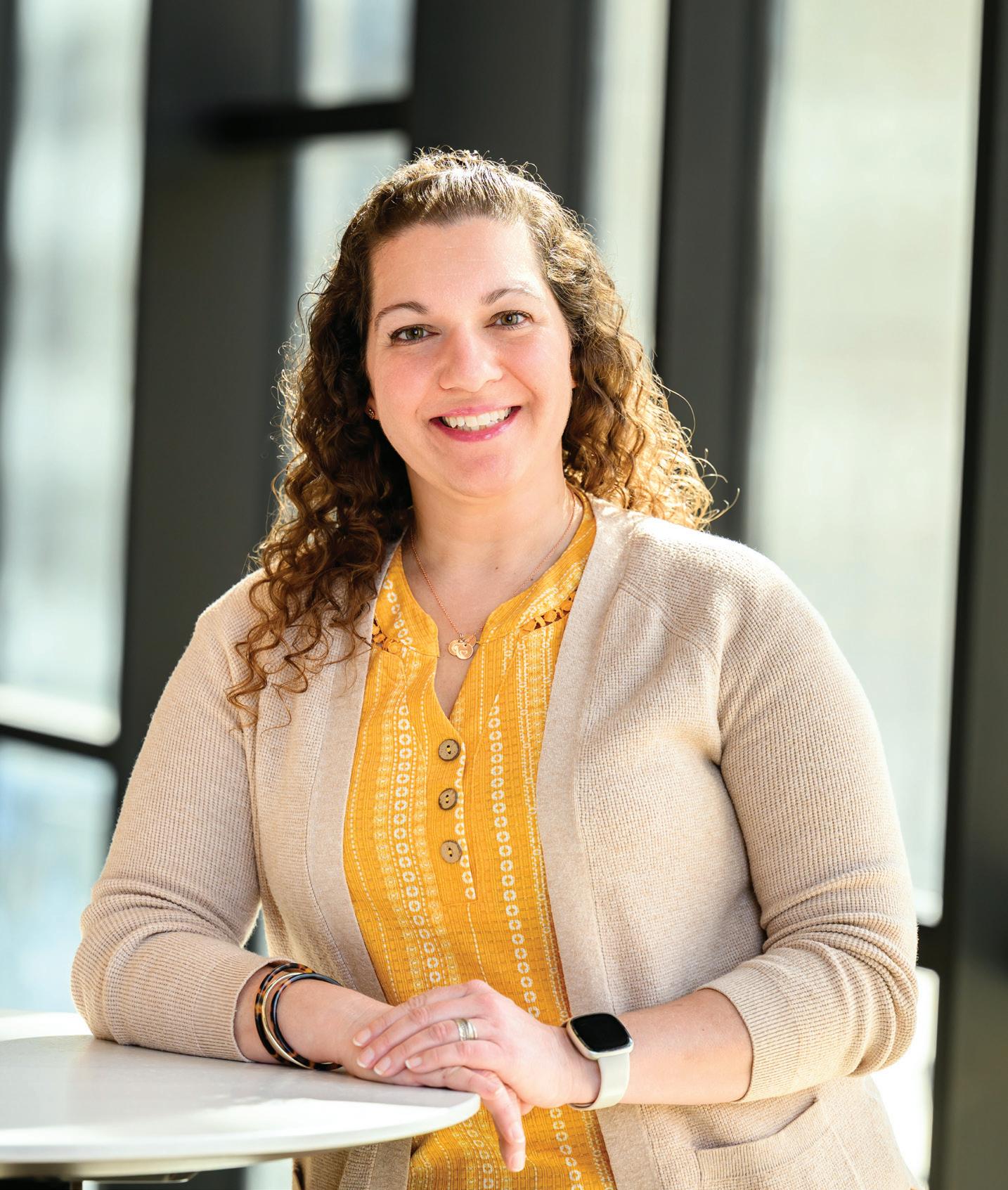
then all my failures, too,” she says. “We all make mistakes, but you always strive to be better tomorrow than you were today. I always tell my students, no one expects you to know every single thing, but you should know how to find the answer. So I try to give them the tools to find those answers.”
Hrabak actively participates in professional development opportunities, attending conferences and engaging in research to stay at the forefront of emerging practices and technologies in health care. Her passion and aptitude for translating new knowledge into improved care practices has made a significant impact.
Recently, Hrabak disseminated an evidence-based pediatric intervention demonstrating and evaluating the importance of
Pediatric Therapeutic Holds or comfort holding to nursing students.
“It’s the concept that you can position a child in a parent’s arms to help restrain them during a vaccine or procedure, but to the child, it feels like a hug or an embrace from their loved one,” she says. “We started adding that into our curriculum and actually made it into a poster project that was presented last year at the education summit for Ohio League for Nursing.”
Hrabak truly feels that each of her students’ successes are her successes. “If it’s a successful procedure or intervention or providing a lending ear and supporting a patient, I take pride in having the opportunity to guide students,” she says. “I try to mentor them and always lead by example.”
In December 2012 when Hrabak was pregnant with her first child, she saved her neighbor’s life who was having a massive heart attack in the middle of the night. “I was the first responder and started CPR. And because of that, he is a normal functioning human being today. I just went in and did what I was trained to do. But that’s always been a big moment in my life.”
“Touching patients and putting your hands on patients, that’s a very special thing and it’s very powerful,” she says. “Making an impact on someone’s life in that way … it's a gift that I can't even describe.”
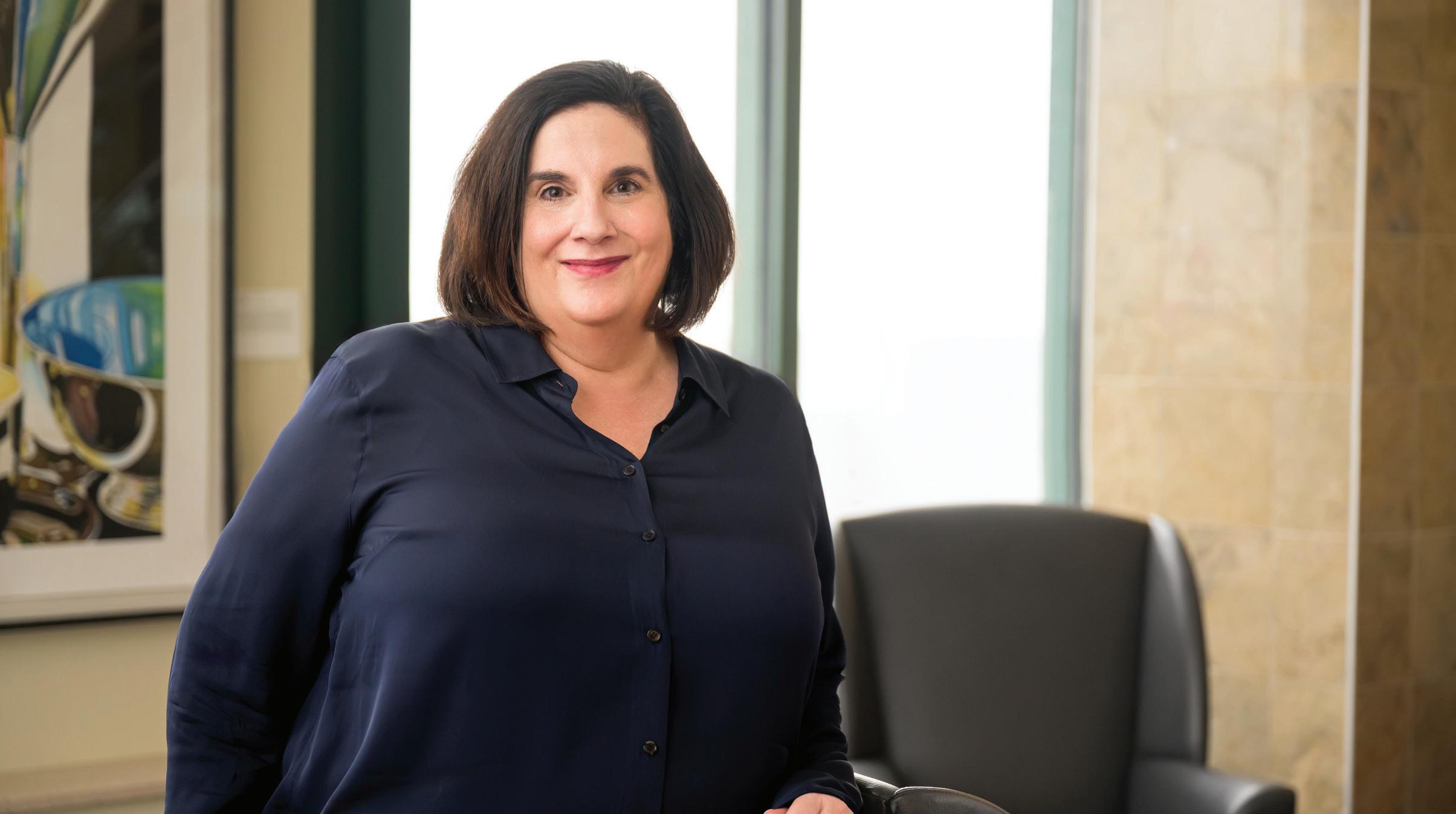
Through her 37 years at University Hospital, Francesca “Maggie” Logterman’s incredible nursing career has spanned multiple clinical departments including as a nursing professional development specialist and the Periop Education Team Lead. Her best days were still when she was scrubbed in in the OR.
“My favorite case was always a brain aneurysm because my specialty was neuro surgery,” says Logterman, passionate about nursing, education and leadership. “My best day is with a high functioning surgical team working together without saying a word to each other. It's like when an orchestra comes together and everybody is on the same page.”
Even now that she is far from the bedside, Logterman says there’s one core belief she has instilled in her team of 11 perioperative nurse educators: They must focus on and be able to relate to the nurse they are delivering education to and they have to be current in the practice so they know firsthand the challenges that the staff face on a daily basis.
“I believe they deliver better education because of that,” says Logterman, who has been actively involved in system-wide nursing workforce development for decades. “The patient is always the center, so we never move away from that. But the focus shifts more to the nurse when you become an educator. You are developing new nurses and you're showing them how to become the best OR/PACU nurse and you're giving them the skills to do that.”
She collaborated with Ursuline College to launch a unique perioperative immersion experience for undergraduate BSN students. This immersion allotted students an opportunity to explore the unique environment of perioperative nursing but while doing so, also strengthen their skills in infection control, safety and patient advocacy.
“One of the early goals that I take pride in was breaking down the closed doors of the ORs to students to get them in here early in nursing schools to recruit and to build a pipeline,” she says. “You have to create an environment that's open and supportive to students and new learners.
Nurses have the answers, you just have to ask them. “I've said this through my whole career, nurses always have the answers on what to do,” Logterman says. “They're problem solvers. They're scientists. You just have to get them to the table to find solutions, especially in big hospital systems, and then you have to listen to them.”
On nurse advocacy: “It’s always a question of ‘What can you do to help that nurse?’ It's a very challenging health care setting and one of the best ways you can advocate for a nurse is to help them develop the skills they need in the environment.”
Logterman is known for pushing her educators to have interactive classes and fine tune their teaching skills by embracing feedback. “One of the things where I felt like I made one of the biggest impacts with my team is by using feedback,” she says. “You have to mentor people on how to give it and receive it, challenge if the feedback is true and take only what you need from it to become better.”
We do that through partnerships with schools such as Ursuline, Kent and Cleveland State. And we have a Periop program for new grad nurses or a nurse coming from another floor.”
Logterman was instrumental in the revamping of onboarding for OR nursing in 2024. She initiated and promoted change on the unit, and she seeks best practices and refuses to lean into historical norms.
A mother of two grown children, Logterman’s daughter is an emergency room nurse at UH’s main campus.
“Having her here, it's a joy,” she says. “Watching her orientation and her growth, with support of the nurses in the ER, the leadership team and the educators, it has been a true gift. She's had this fantastic experience as a new grad nurse in a very chaotic, difficult environment. It has sort of renewed my faith in nursing.”
Ten years into “retirement” after a more than 40-year career that included clinical nursing, being a nurse educator and co-authoring textbooks, Barbara Yoost easily says she could not have asked for a better profession.
“For me, it was always about responding to the needs of others. And knowing that all of us have the responsibility to find ways of caring for other people,” she says. With a desire to pursue missionary nursing, Yoost was able to serve within the United States as a camp nurse or camp staff volunteer, and globally on short-term mission trips and international teaching opportunities. She currently volunteers as a member of the Medical Reserve Corps for Ohio.
Nursing is a calling, Yoost says. “It requires lifelong learning and education that includes unbelievable amounts of research and evidencebased practice. That’s what changes lives and saves patients.”
Endless possibilities: When talking to undergraduate students, Yoost starts by saying “please do not limit how you see your professional life going forward, because I never would have dreamed of the opportunities that I've had when I was sitting where you are.”
One of her nursing educator career highlights: Developing and teaching a study abroad course for nursing and public health students in Geneva, Switzerland. Yoost secured entry for her 20 students to attend the World Health Assembly at the United Nations (with credentials provided by the World Council of Churches), tour the World Health Organization and attend presentations at the International Council of Nurses, Doctors without Borders, and other Geneva-based non-governmental organizations.
She began her nursing practice at Akron General Medical Center in the Medical Intensive Care Unit. While there, the founding Dean of the Kent State University College of Nursing asked Yoost to teach part-time courses.
“I truly loved practice and never saw myself teaching nursing,” she says. “However, being able to practice and teach undergraduate students became my passion and life’s work.”
She practiced critical care nursing in the Western Reserve Care System and later practiced and taught at North Central State College and Huron School of Nursing within the Cleveland Clinic Hospital System. While teaching full time at Kent State University and serving as the Fundamentals Program Coordinator, she was a clinical instructor at University Hospitals and the KSUCON Honors Program Coordinator and faculty member.
“While an assistant professor at Notre Dame College, I had the privilege of participating with students in the Guatemala Immersion Experience teaching elementary school students about handwashing and assessing the needs of patients in the community health clinic,” says Yoost, who
has been married for 50 years with a family that includes “two incredible sons, two equally incredible daughters in law, and six beautiful grandchildren.”
“My passion has always been to engage students in active learning and encourage them to be open to opportunities to make a difference and advocate on behalf of others,” she says.
Case in point: Yoost was asked to provide continuing education to nurses in Turkey because of her early research in handheld technology and its use to increase patient safety. Following that experience, she was asked to conduct a needs assessment and teach continuing nursing education courses in the United Arab Emirates.
“I have many colleagues and nurse leaders to thank for supporting me to do far more in my nursing career than I ever dreamed possible,” says Yoost, who was inducted as a Fellow into the National League of Nursing (NLN) Academy of Nursing Education in 2011 and currently serves on the NLN Centers of Excellence Review Panel. “I want to encourage students to pursue a commitment to serving others and be open to unlikely opportunities along the way.”
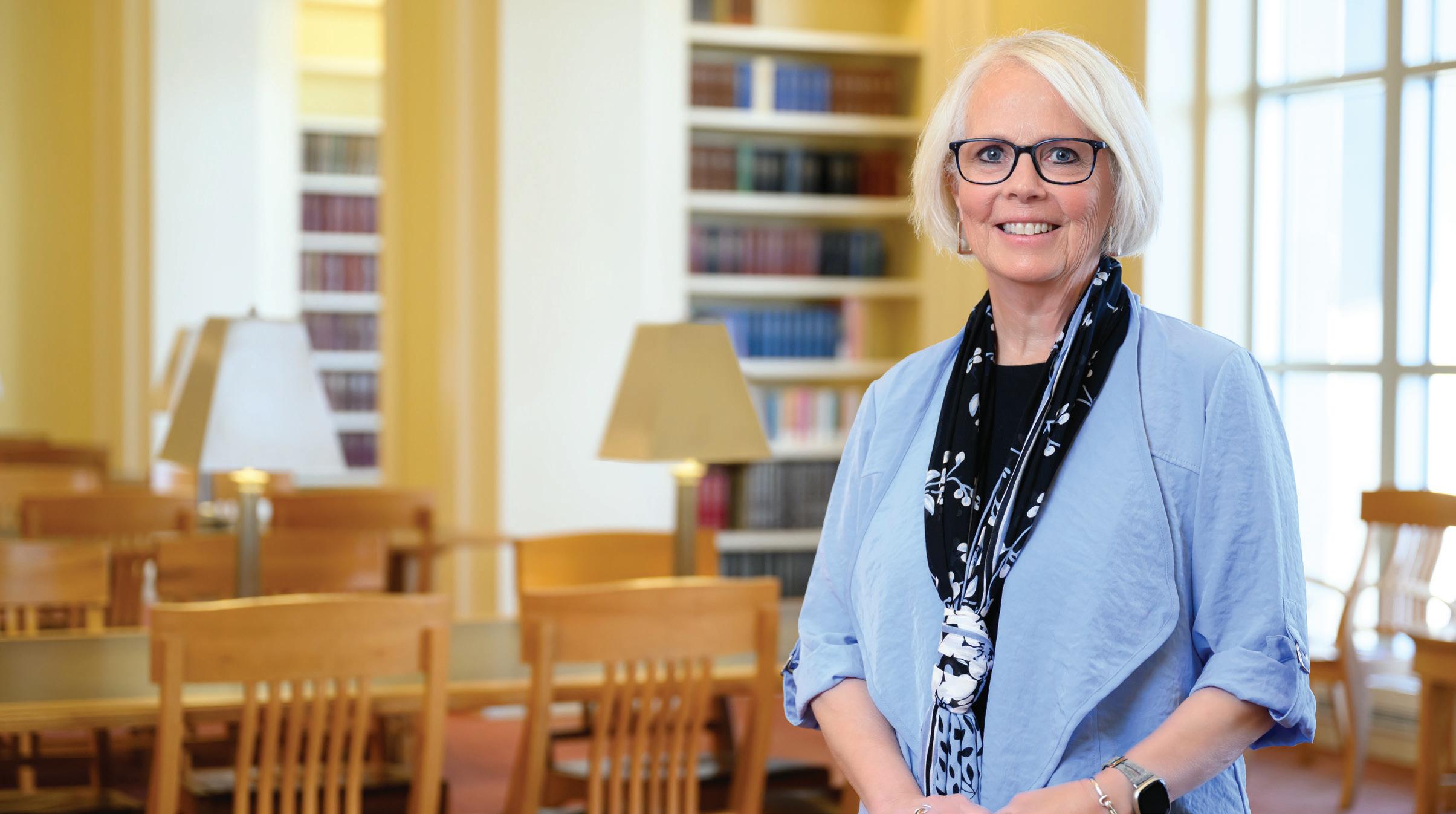
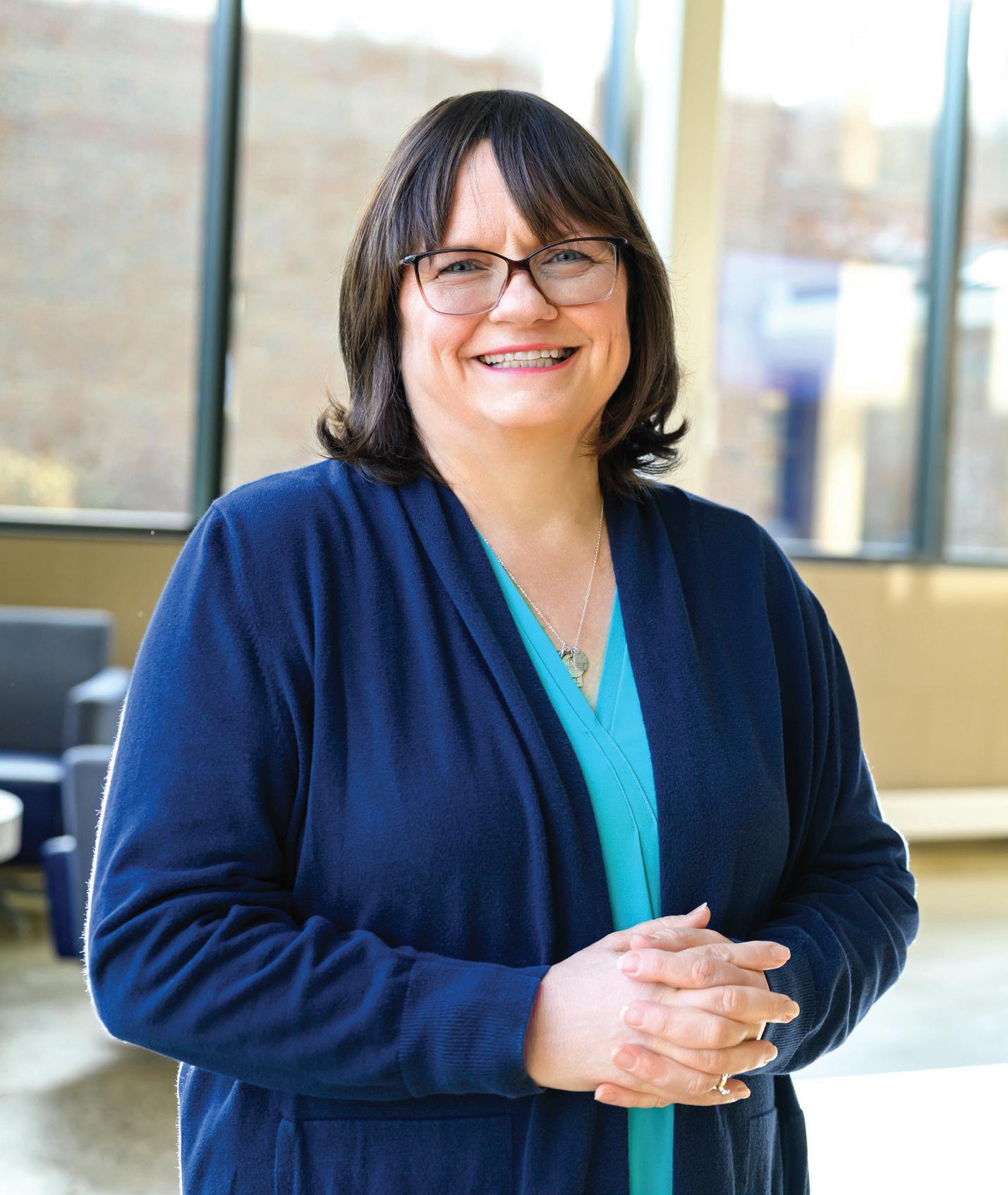
Before she could even read, Jennifer Johnson knew she wanted to be a nurse. This declaration would come to fruition some 20 years later.
“I had the grades, and I had the opportunity,” says Johnson, now as an assistant professor at Ursuline College. She attended Marshall University in her hometown in West Virgina where she graduated with honors.
After taking her first job in a cardiac step-down unit, she began working on her graduate degree. “And then I met my husband who moved to Michigan.’”
She transferred to Michigan State University and found a job working in a hospital in rural western Michigan.
“That was a really pivotal learning experience because you are it, and if you can't do what you need to do, you need to fly these patients to the metropolitan areas,” she says. “I developed critical thinking and became a better communicator. I was able to assist in many different medical situation including C-sections and heart attacks. It was enlightening.”
After starting a family she moved to Northeast Ohio in 2006. Dedicated to raising her young sons, she worked every weekend for six years so she could be “mom Monday through Friday.”
Johnson, who started teaching full time in 2014 and completed her doctorate in
2018, earns praise by both students and peers for her fun and interactive teaching style and her ability to break down complex concepts into comprehensible and engaging lessons. She even carries around large dice in her backpack.
“When I pull that die out, my students know it means we’re going to play a learning game. I break them into groups and then we run through exam questions or practice questions to apply knowledge covered in the course,” she says. “My colleague, Erin Schroeder, helped me a build a digital chutes and ladders, that uses the material and takes players through the game board.”
Actively dedicated to collaborative research, Johnson’s work on numerous projects has not only advanced understanding of key topics such as AI but has resulted in presentations at local and national conventions.
“I've had the opportunity to do research and to look for ways to improve in the classroom and then to showcase that,” she says. “Erin and I have worked together on different aspects of AI and how to harness that to use that in a classroom. We used AI to generate scenarios for students to play out communication or ethics. We have presented locally and at the state level, and we will present in DC in the fall. We are also presenting a workshop where we’re teaching professionals how to use AI as a tool.”
Through her dynamic teaching methods and dedication, she strives to equip her students with the knowledge and skills necessary to excel in their careers.
“I love those light bulb moments when you can see or experience with them the aha that they understand,” she says. “It’s pretty amazing when you think ‘I helped shape that. I helped that person become who they are.’ So now instead of impacting the individual patients I cared for in a clinical setting, I can impact a student who then impacts more patients, and on and on. That’s an incredible ripple effect.”
As an educator, Johnson strives to be approachable, first and foremost. “I try to make my classroom a safe space. It’s okay to be wrong. It's okay to error in the classroom because we can learn from that. When we make an error, we own it. This is how we look professional.”
Reflecting on her career in clinical practice and as a nurse educator: “I hope I provided excellent bedside care and taught new nurses and students how to do things properly and for the right reasons.”
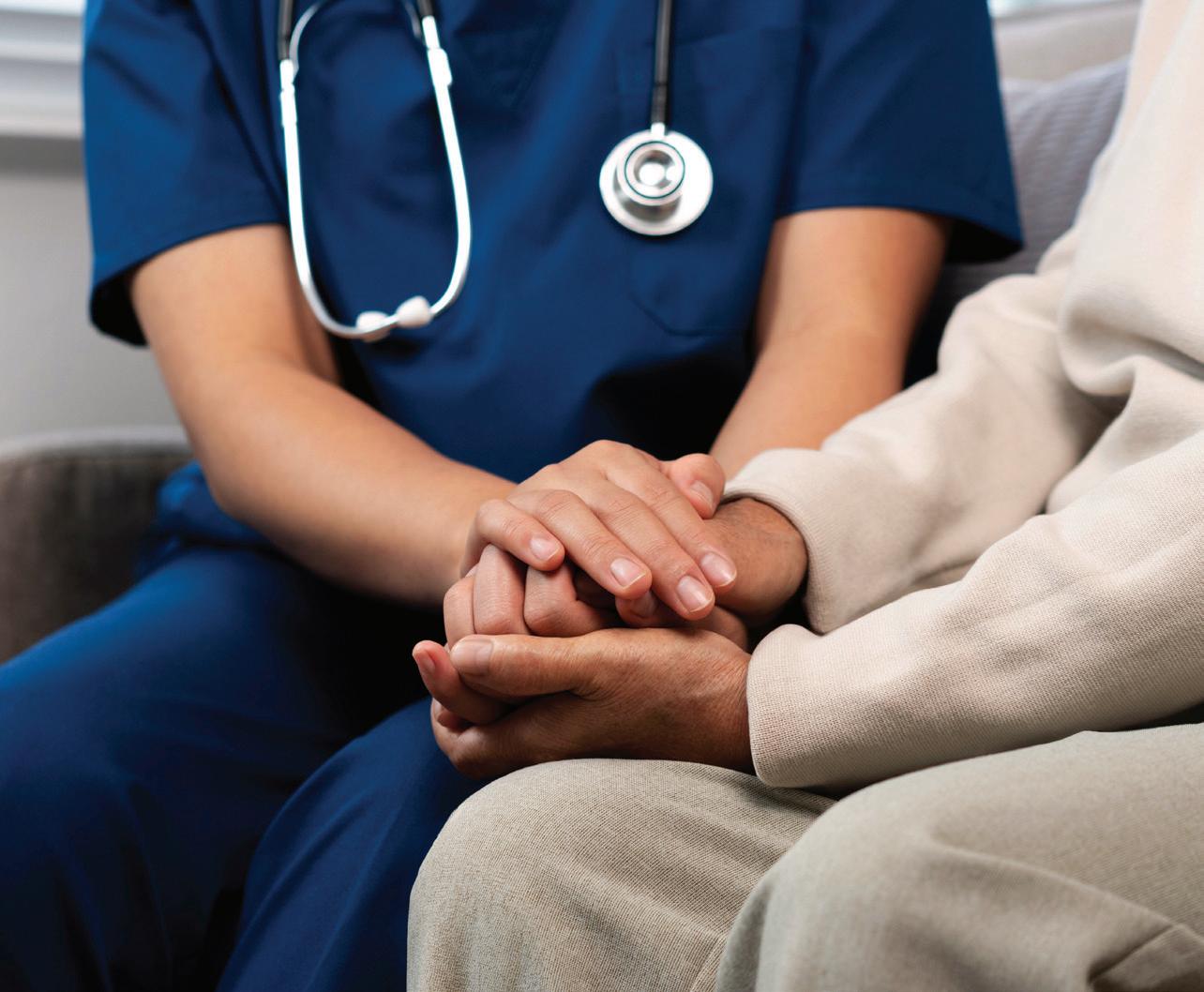
Meet the incoming generation of nurses stepping in to provide top-notch patient care.
By Sarah Webb
Ready to hit the ground running, these incoming nurses exhibit confidence, competence and, most importantly, quality care. Here are their stories.
Join a community of faculty and students advancing the nursing discipline.
• #10 Bachelor of Science in Nursing*
• Master of Nursing
• #17 Master of Science in Nursing*
• #17 Doctor of Nursing Practice* (DNP)
• DNP Nurse Anesthesia
• Doctor of Philosophy in Nursing (PhD)
*U.S. News & World Report, 2024
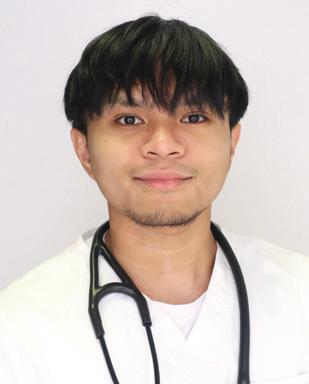
Consistency, time management and discipline are all attributes required for strength and fitness training, but Jahne Maverick Pableo, student at Cleveland State University, adheres to them in his nursing career, too.
“I apply that same mindset to everything I do, whether it is developing clinical skills, improving communication or becoming a better leader,” Pableo says.
In addition to classes and clinicals, Pableo has been working in The Cleveland Clinic Main Campus cardiovascular intensive care unit (CVICU) as a nursing aide for the past two years.
“The most rewarding part has been making a real difference in people’s lives, especially seeing patients go from critical and unstable to walking, smiling and talking again,” Pableo says. “It is incredibly fulfilling to be part of their healing journey and to watch their strength return day by day.”
Pableo recently accepted a CVICU RN position at the Cleveland Clinic after graduation, with a long-term goal to become a certified registered nurse anesthetist.
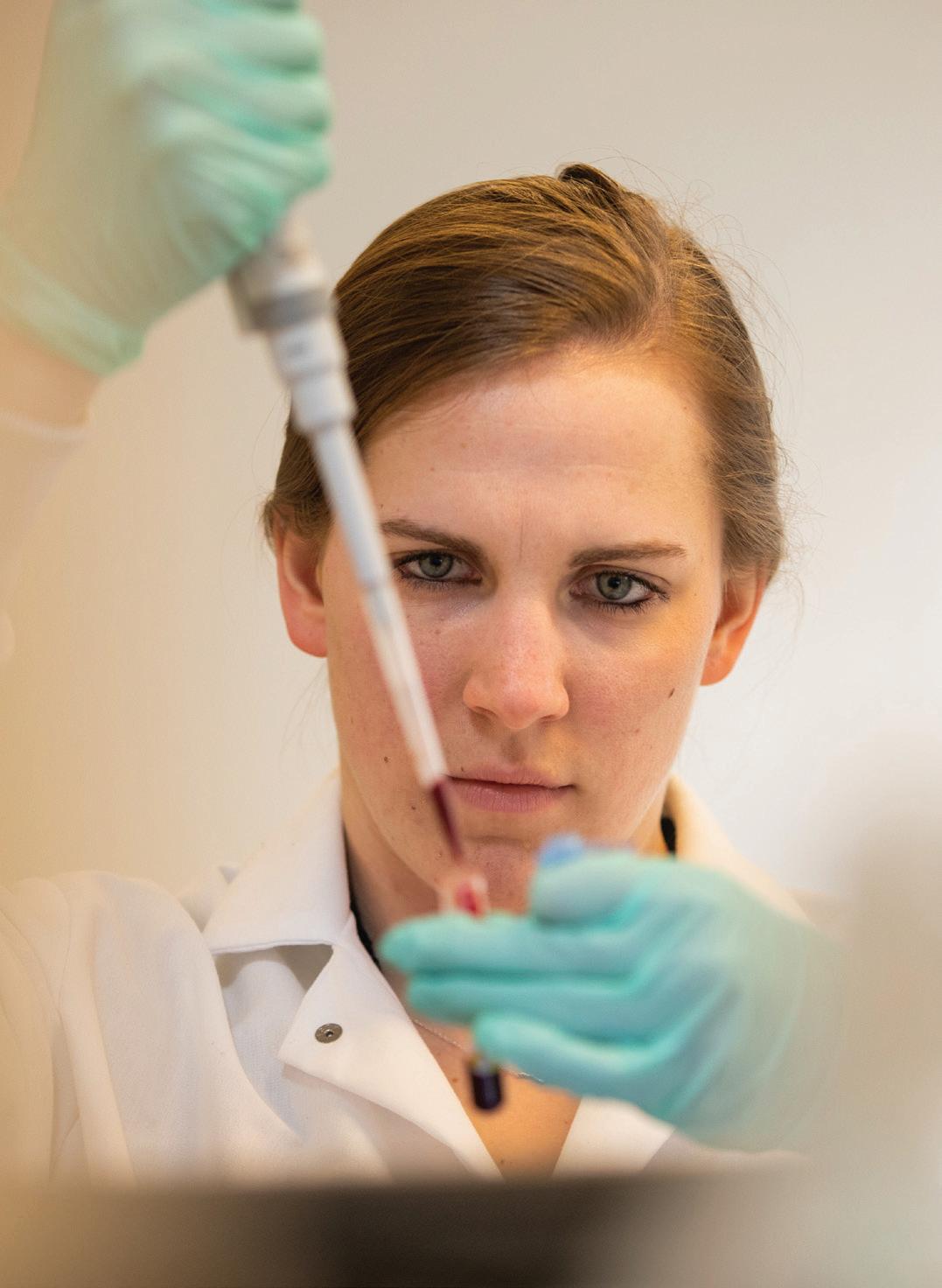

JENNA SCHIFANO Baldwin Wallace College
Jenna Schifano understands that when people find themselves in the hospital, most often, it is among the scariest days of their lives. This is where the Baldwin Wallace nursing graduate is eager to step in.
“It is an immense honor to partner with them in these moments — giving a warm smile and assuring them you are with them,” Schifano says.
To serve as a pillar of support for patients, Schifano plans to attain a career in an emergency room and would also like to elevate the nursing profession as a whole.
“There are many things that I love about nursing, but there are also a lot of areas where nursing still needs growth and advocacy,” Schifano says. “There have been many nurses who have helped me, and I can’t wait to help other nursing students the same way.”
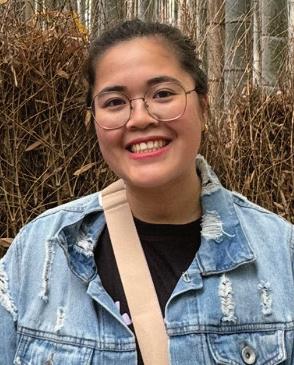
As an undocumented child immigrant, Rianne Reilly didn’t have access to health care.
“We couldn’t afford to go to the doctor for preventive care because we feared deportation,” says Reilly, noting that this inspired her to become a nurse.
While her undocumented status initially prevented her from entering nursing school, she didn’t let that stop her.
After earning a bachelor’s degree from UC Irvine, completing a stint at Facebook HQ and attaining U.S. citizenship, Reilly eventually found her way back to nursing by enrolling in the program at Lorain County Community College (LCCC).
Upon graduation, Reilly will pursue a job in California and ultimately would like to join a medical mission in the U.S. or abroad.
“When I was undocumented, I dreamt of getting a college degree, and now I am working on my third,” Reilly says. “I dreamt of becoming a nurse, and now I am making it a reality. What seems impossible will fall into place if you really want it.”
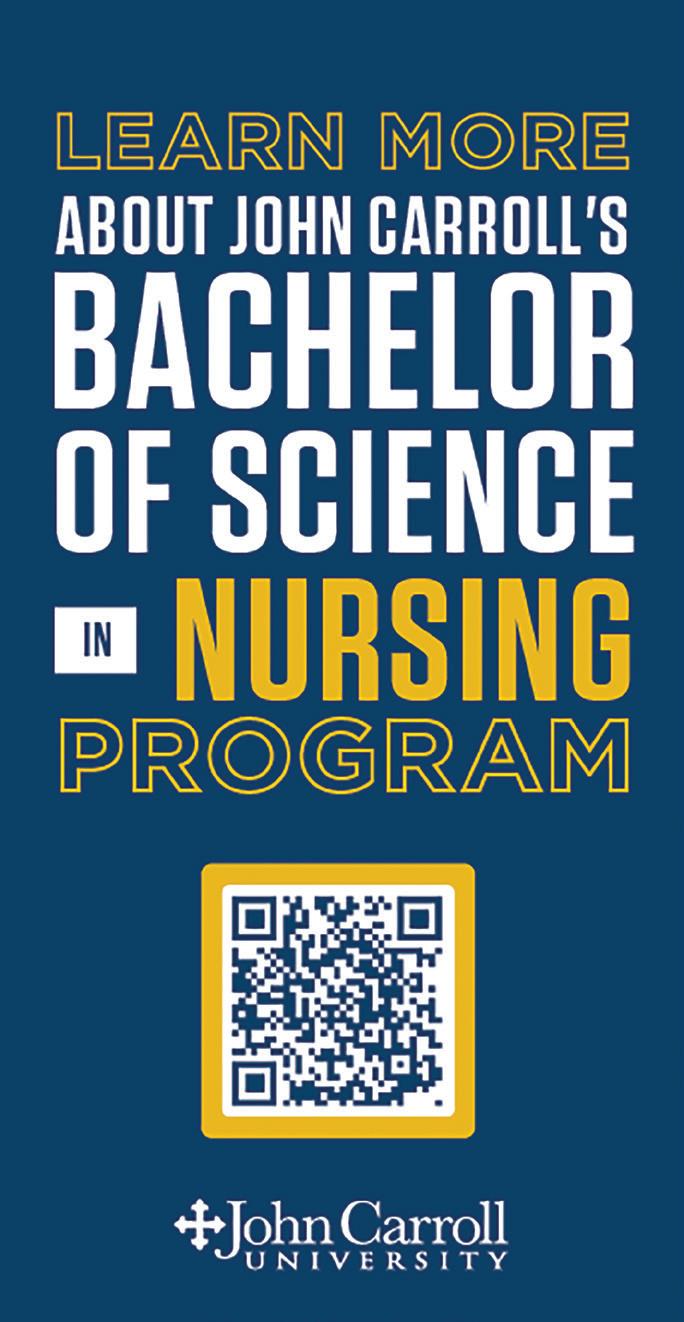

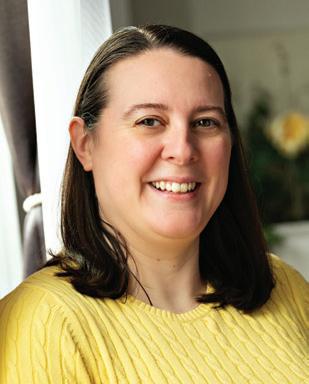
Elizabeth Gattie, Ursuline College nursing student, previously worked as a controller at a local company, but during COVID, she felt called to serve a greater purpose.
“I was watching all of these people sacrifice to help other people, and I didn’t participate in that and felt like I should be doing more,” Gattie says.
Throughout her time at Ursuline, Gattie took the “doing more” mentality to heart, participating in the Student Nurses of Ursuline College organization. The group assists with volunteer efforts on campus such as participating in health fairs and supporting the Go Red for Women campaign.
Moving forward, Gattie has accepted an RN position in the ICU at University Hospitals St. John Medical Center
“I’m excited to be on my own — I’ve gone through the program and am competent and know how to do all these things,” Gattie says. “It’s cool that this is not the path I originally thought I’d be on.”
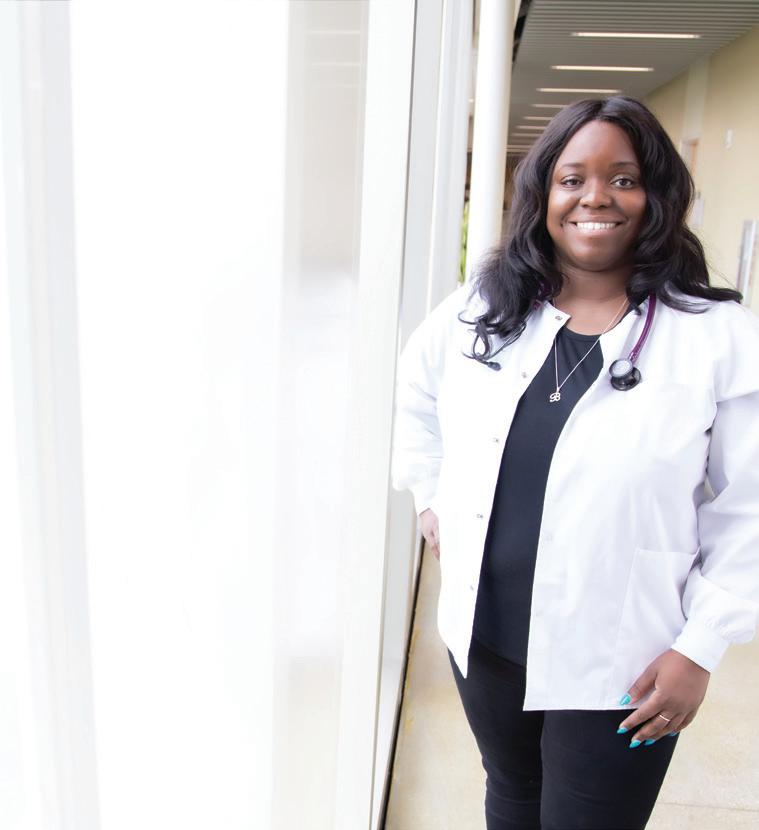
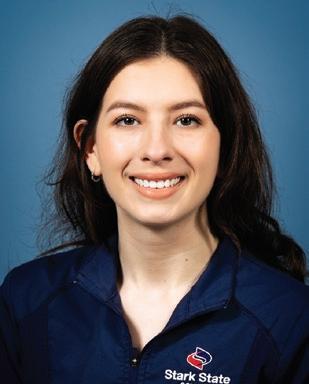
Stark State nursing student Kayla Haines felt drawn to nursing because it blended her love for science with her desire to be actively involved with patients.
“I wanted a career in which I would be able to form meaningful relationships with my patients,” Haines says.
Throughout her time at Stark State, Haines has enjoyed exploring various specialties and, upon graduation, plans to pursue a career in the intensive care unit of a local hospital.
“I look forward to providing care and support to patients and their families during some of their toughest times and celebrating with them at their most hopeful,” Haines says.
Her goals don’t stop there, however, as she also plans to attain her master’s degree in nursing and become a teacher in a nursing school.
“I would love to give back to the field and help future nursing students find success in their careers,” Haines says.










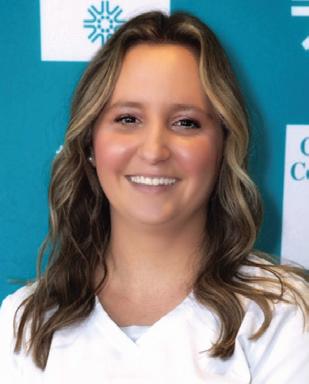
Catherine Svoboda has wanted to be a nurse since she was a little girl, and her decision became solidified after experiencing the care provided to her preemie twin daughters by the Cleveland Clinic NICU nurses.
“I remember thinking, these nurses are angels. I want to be an angel, too,” says Svoboda, a first-generation college student and mother of four. “I am looking forward to being the light in someone’s darkness and the opportunity to constantly expand my knowledge throughout my career.”
Following graduation, Svoboda will begin her dream job in the ICU at Cleveland Clinic Hillcrest Hospital and enroll in a bachelor’s program at Ohio University by the end of this year.
“Throughout nursing school, everyone would ask what kind of nurse I wanted to be, and my response was ‘a good one,’” Svoboda says. “I have a drive to learn everything I possibly can so I can best advocate for my patients and their families.”

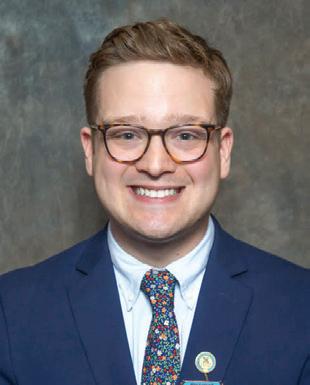
FPB SON
While Ethan Slocum knew he wanted to work in health care, the Case Western Reserve University graduate originally thought he’d try his hand at medical bioengineering. However, he switched course after realizing he wanted to form strong connections with patients.
“My mom’s a nurse, so I grew up with that type of conversation around the dinner table, and I thought, ‘what’s the risk of trying it?’” Slocum says.
During rotations, Slocum fell in love with the pediatrics segment.
“If not for that rotation, I probably would not have discovered that interest,” says Slocum, who recently accepted a job in the University Hospital Rainbow Babies and Children’s Hospital pediatric cardiac intensive care unit.
Additionally, Slocum also serves as the immediate past president of the National Student Nurses Association.
“It has allowed me to do the advocacy I’m really passionate about with nursing and speak to the things I’m learning about, but also have an impact further than what I can achieve at my own school,” Slocum says.


